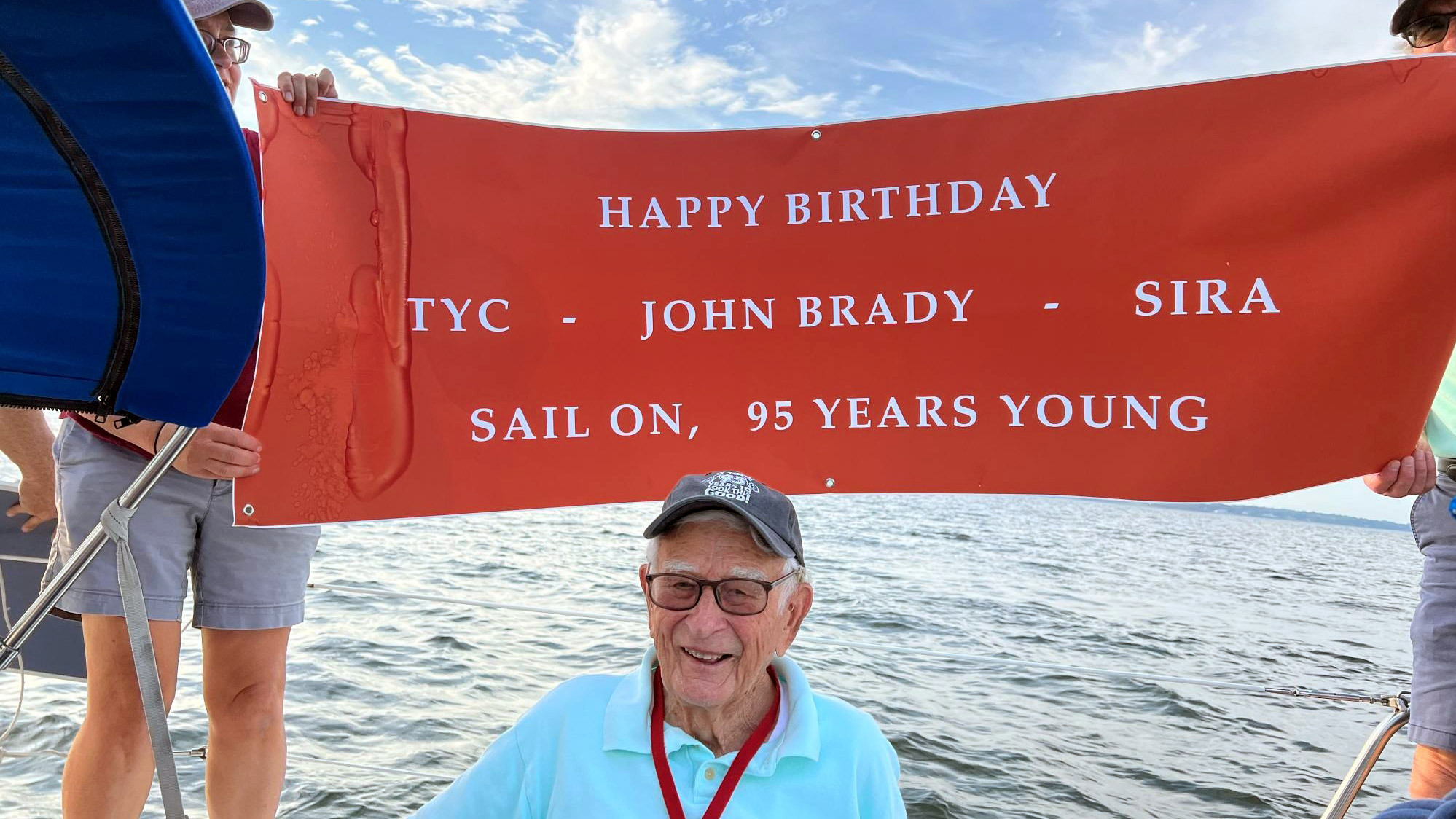It is a wonderful life
John Francis Brady ’48, SM ’50

In 1936, when John Francis Brady ’48, SM ’50, was in second grade, he was diagnosed with rheumatic fever. His doctors, following the practice of the day, prescribed complete rest. He wasn’t even allowed to climb stairs. So when it came time to start third grade, which was taught on the third floor of his elementary school in Taunton, Massachusetts, he was placed in a class for newly immigrated students on the first floor.
“This was a class with kids of all ages, from Italy and Portugal and elsewhere, taught by a wonderful woman named Miss Hoye,” recalls Brady. “This woman, with the greatest of ease, taught them English and arithmetic and even baseball, and prepared them for life as Americans. At the end of the year, she told me I should skip fourth grade and go directly into fifth. So that’s how I ended up as a 16-year-old first-year student at MIT in September 1945.”
Orientation was a wake-up call. “All the first-year students were assembled beneath the big dome,” he recalls. “And a professor told each of us to look to our left and then to our right, because one of these people was not going to be there at the end of the year. That was the attitude in those days. I knew I hadn’t attended a very competitive high school. I hadn’t even studied calculus. The first term was very difficult. But I managed to pass all my courses.”
Brady commuted from home, almost two hours each way—usually walking from the Back Bay train station because the trolley cost a dime. “Each day, on my walk from the train station to campus, I would pray on the rosary that I would pass the physical test to be admitted to the Air Force,” he says. His prayers were answered and he was accepted into the Air Force ROTC program.
He chose his major, mechanical engineering, after visiting the campus bulletin board, where most of the job openings seemed to be for engineers. “I can’t say I enjoyed my four years at MIT,” he observes. “It was very challenging. But I was proud that I was able to get through it.”
After graduation, Brady worked at the Institute for two years as a thermodynamics teaching assistant and completed his MIT master’s degree in 1950. He recalls hearing Winston Churchill speak at MIT’s Mid-Century Convocation in March of 1949. “It was the beginning of what would become his Iron Curtain speech,” says Brady. He also met his wife, Peg, during that time, on the train from Taunton. Master’s degree in hand, he took a job at the Naval Torpedo Station in Newport, Rhode Island, where he stayed for 25 years—broken only by a 21-month stint in the Air Force during the Korean War. He rose quickly, from director of research to director of development. He also earned a PhD from the University of Rhode Island along the way. After moving into private industry in 1975, he spent the rest of his career at Raytheon, helping develop its torpedo division.
In 1991, at age 63, Brady retired. He and Peg dedicated themselves to sailing, skiing, and spending time with their four daughters and their offspring. They wound up with nine grandchildren and six great-grandchildren (including two sets of twins). “I taught all nine of my grandchildren how to ski,” he says. “My wife passed eight years ago, but we both played tennis when we were 85. We had a wonderful life.”
Brady recently celebrated his 95th birthday “albeit with braces on both knees,” he says, and he rarely misses the Wednesday-night races in Narragansett Bay, where he still sails as tactician on a Frers 36.
“I may not have a long list of patents to my name,” he says. “But I have a long list of family. And a long list of things we did together.”
Keep Reading
Most Popular
The Biggest Questions: What is death?
New neuroscience is challenging our understanding of the dying process—bringing opportunities for the living.
Google DeepMind used a large language model to solve an unsolved math problem
They had to throw away most of what it produced but there was gold among the garbage.
Unpacking the hype around OpenAI’s rumored new Q* model
If OpenAI's new model can solve grade-school math, it could pave the way for more powerful systems.
10 Breakthrough Technologies 2024
Every year, we look for promising technologies poised to have a real impact on the world. Here are the advances that we think matter most right now.
Stay connected
Get the latest updates from
MIT Technology Review
Discover special offers, top stories, upcoming events, and more.